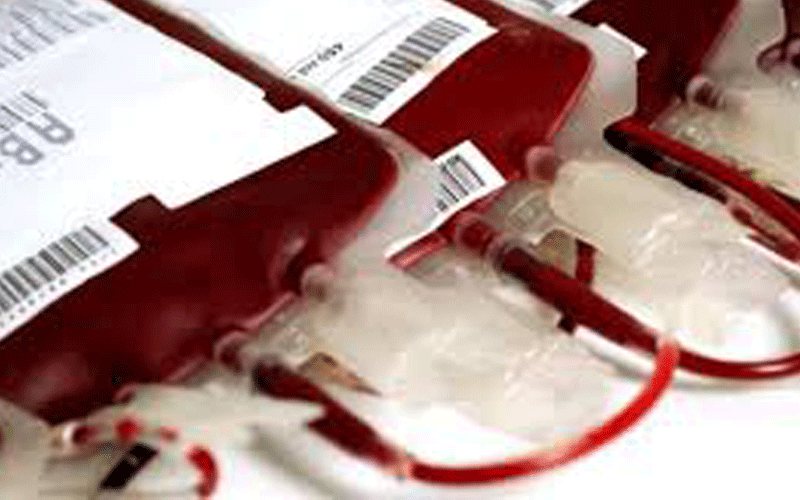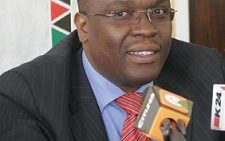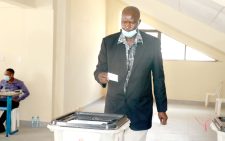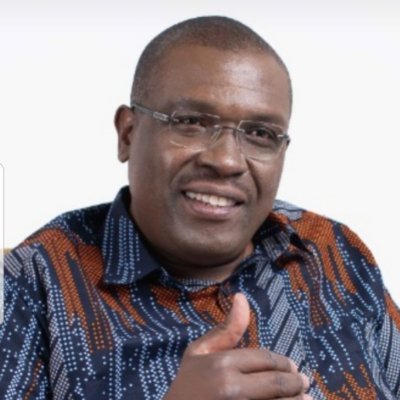Kenya runs on empty as donors turn off blood services funds

by Alvin Mwangi
@PeopleDailyKe
The biting shortage of blood in public hospitals, which has been attributed to a funding shortfall, has put the lives of thousands of patients in danger even as Health Cabinet Secretary Mutahi Kagwe points fingers at cartels in his ministry.
A survey by People Daily also revealed that blood collections centres across the country were poorly equipped and understaffed and neglected.
Some desperate patients revealed they are forced to bribe hospital workers to get blood transfusion.
The shortage is causing a lot of suffering for patients and their families and raises fundamental questions about the health sector’s preparedness in case of an emergency.
For 22-year-old Phillip Kamau, the blood crisis in the country is not merely about statistics. It is about his life.
The college student, who suffers from anaemia, said he is forced to bribe nurses at a Nairobi hospital for treatment.
“Since November last year, nurses have been telling me to pay more so that they can source blood from a government hospital since they have run out of stock.
They tell me that I can only get the blood if I top up the Sh12,000 which I normally pay for a pint,” a helpless Kamau told People Daily.
No blood
Kamau, who is blood Group 0+, needs two pints of blood every month, which, he says, costs him between Sh6,000 and Sh12,000 a pint.
Also caught up in the crisis is Mercy Waithera who hails from Murang’a county.
Waithera was referred to Kenyatta National Hospital but to her surprise, she was told the hospital had no blood.
“I was referred to Kenyatta by doctors who told me that it is the only place that I can get help. But at the hospital, I was told to wait until they obtained enough blood.
I also had a shortage of money,” said Waithera, who suffers from a skin condition that requires regular blood transfusion.
Hospitals are not allowed to independently collect and screen blood for use by their patients.
The Kenya National Blood Transfusion Service (KNBTS) is entrusted with the responsibility of collecting, testing, and matching and distributing blood and blood products – at no cost to patients.
Speaking to People Daily on Phone, KNBTS boss Fridah Govedi admitted the shortage. She said the Health ministry will open more blood donation sites to manage the crisis.
“The ministry will also be improving funding to support services as it works on the Kenya National Blood Transfusion Bill which will be leveraged on technology to manage blood and blood products supplies,” she said.
Ministry cartels
She also revealed that the national government is planning to establish a disaster blood response unit in partnership with county governments.
“We are on course and I want to assure you that in the next few days we will be in a good position. My only plea to Kenyans especially is to turn up in large numbers and donate blood,” she said.
Kagwe, the Health Cabinet Secretary, last week blamed cartels linked to ministry officials for the blood crisis, saying: “The ministry is aware that some criminal elements within the ministry have been working with outsiders to escalate the blood crisis.”
He added: “These cartels are engaged in blood trade within and outside the country for selfish gain without regard for women and children who are dying in hospitals as a result of the shortage.”
Kagwe took over the Health docket less than two weeks ago. Detectives at the Directorate of Criminal Investigations (DCI) yesterday said they were investigating reports that some rogue hospital officials were selling blood to neighbouring Somalia.
The Ministry of Health had written to the DCI asking them to investigate the reports that some Health ministry officials were hoarding the blood and later selling it to some hospitals and brokers in the neighbouring country.
“Investigations have been launched to establish the cause of the artificial shortage and those behind it,” a senior detective told People Daily yesterday.
The country has 170,000 blood units against the annual one million recommended by the World Health Organisation.
Daily demand
The national demand stands at about 500,000 units per year. However, KNBTS blood collection has stood at around 150,000 to 200,000 units a year. Daily demand should stand at 1,100 units but, at the moment, it is up to 2,000 units.
The United States government set up the blood bank after the 1998 US Embassy attack in Nairobi, with specially trained staff who would be in charge of assuring the quality of donor blood.
The US funded the service to the tune of Sh850 million a year through the US President’s Emergency Plan for Aids Relief (Pepfar)
However, the funding would only last for 17 years as the Kenyan government was expected to take over after the period.
The funding was reduced on a five-year basis. In July last year, the funding ceased altogether, catching the Ministry of Health apparently unawares.











